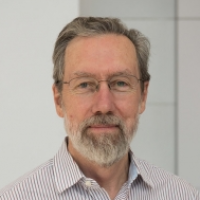Hearts, Minds, Voice: U.S. Cold War Diplomacy and the Formation of the Third World
The postwar emergence of the "Third World" as an intellectual concept and geopolitical community is conventionally seen either as a category imposed on the Global South by the Cold War superpowers, or as an "organic" entity generated by peoples undergoing decolonization. Jason Parker argues that the Third World instead arose from an interactive process: as the superpowers sought to win "hearts and minds" through public diplomacy there, their efforts led anticolonial nationalists instead to reject the Cold War in favor of forging an imagined community grounded in nonalignment, economic development, and racialized solidarity. Jason Parker is Associate Professor of History at Texas A&M University, where he has taught since 2006. He completed his PhD in 2002 at the University of Florida under Bob McMahon and taught for four years at West Virginia University. He is the author of Brother's Keeper: The United States, Race, and Empire in the British Caribbean, 1937-1962 (Oxford University Press, 2008) which won the SHAFR Bernath Book Prize, and of articles in the Journal of American History, Diplomatic History, the Journal of African American History, International History Review, and elsewhere. He has received research fellowships from the Smith Richardson Foundation, the Truman Library Institute, the Fulbright Foundation, and the Mershon Center in support of his new book Hearts, Minds, Voices: U.S. Cold War Public Diplomacy and the Formation of the Third World (OUP, 2016) and of his next project, a comparative study of postwar federations in the Third World. The Washington History Seminar is co-chaired by Eric Arnesen (George Washington University) and Christian Ostermann (Woodrow Wilson Center) and is sponsored jointly by the National History Center of the American Historical Association and the Wilson Center's History and Public Policy Program. It meets weekly during the academic year. The seminar thanks the Society for Historians of American Foreign Relations and the George Washington University History Department for their support.
Speaker

Moderator

Hosted By

History and Public Policy Program
A leader in making key foreign policy records accessible and fostering informed scholarship, analysis, and discussion on international affairs, past and present. Read more


Cold War International History Project
The Cold War International History Project supports the full and prompt release of historical materials by governments on all sides of the Cold War. Read more
